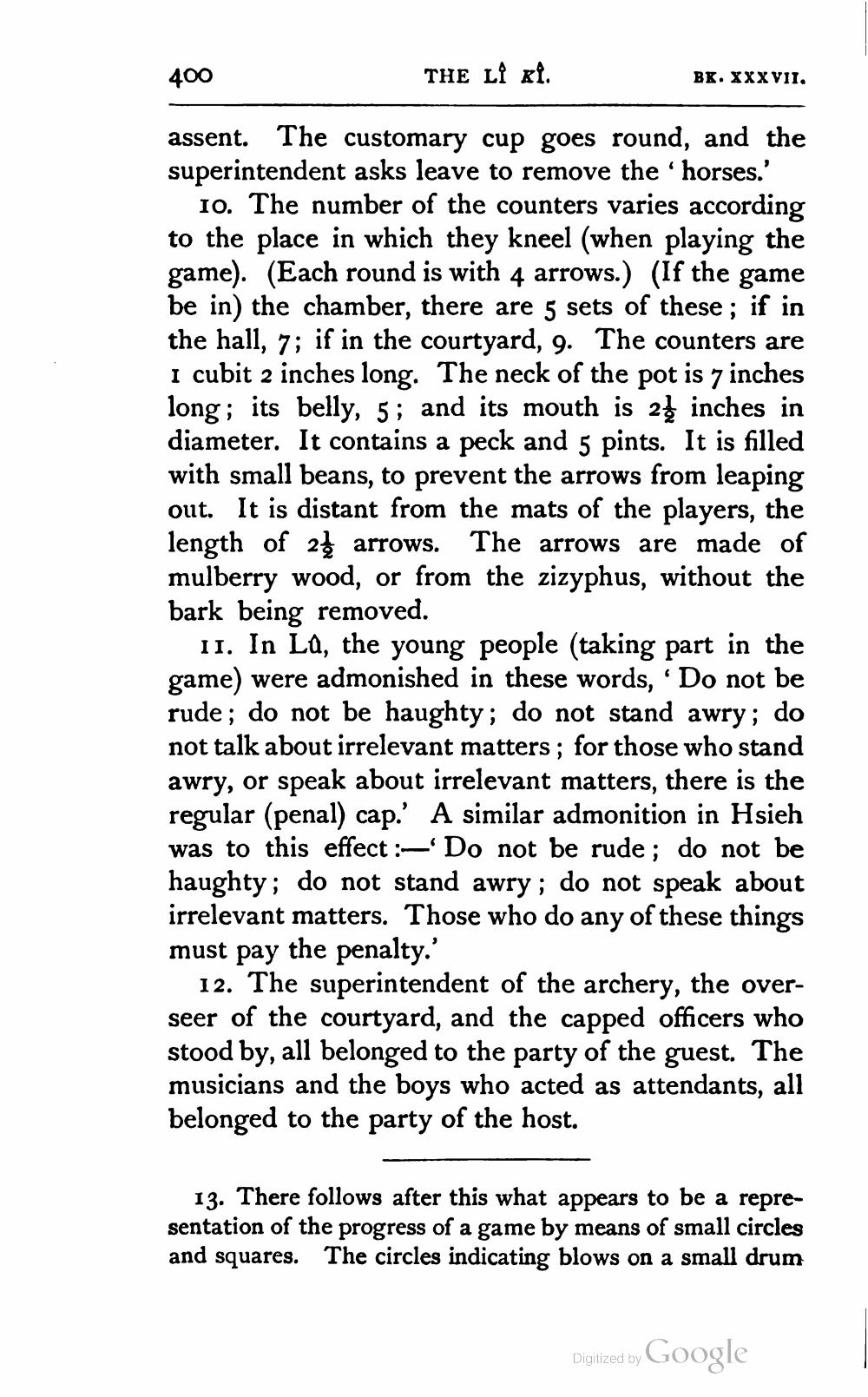________________
400
THE LI Kİ.
BK. XXXVII.
assent. The customary cup goes round, and the superintendent asks leave to remove the ‘horses.'
10. The number of the counters varies according to the place in which they kneel (when playing the game). (Each round is with 4 arrows.) (If the game be in) the chamber, there are 5 sets of these; if in the hall, 7; if in the courtyard, 9. The counters are I cubit 2 inches long. The neck of the pot is 7 inches long; its belly, 5; and its mouth is 2 inches in diameter. It contains a peck and 5 pints. It is filled with small beans, to prevent the arrows from leaping out. It is distant from the mats of the players, the length of 2 arrows. The arrows are made of mulberry wood, or from the zizyphus, without the bark being removed.
11. In Lû, the young people (taking part in the game) were admonished in these words, 'Do not be rude; do not be haughty; do not stand awry; do not talk about irrelevant matters; for those who stand awry, or speak about irrelevant matters, there is the regular (penal) cap.' A similar admonition in Hsieh was to this effect: Do not be rude; do not be haughty; do not stand awry; do not speak about irrelevant matters. Those who do any of these things must pay the penalty.'
12. The superintendent of the archery, the overseer of the courtyard, and the capped officers who stood by, all belonged to the party of the guest. The musicians and the boys who acted as attendants, all belonged to the party of the host.
13. There follows after this what appears to be a representation of the progress of a game by means of small circles and squares. The circles indicating blows on a small drum
Digitized by
Google




